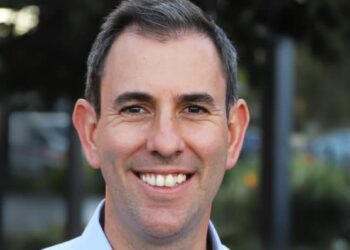In October last year, the government introduced a package of bills relating to the royal commission’s recommendation to establish a compensation scheme of last resort (CSLR).
Schedule 3 of the Financial Sector Reform (Hayne Royal Commission Response No. 3) Bill 2021 establishes a CSLR to compensate consumers where the Australian Financial Complaints Authority (AFCA) has made a determination in their favour that remains unpaid. It is part of a package of three bills to establish and fund the CSLR.
The Financial Services Compensation Scheme of Last Resort Levy Bill and the Financial Services Compensation Scheme of Last Resort Levy (Collection) Bill 2021 form the levy framework for the financial services CSLR. The framework imposes a levy on relevant industry entities.
In November last year, the Senate referred the bills to the Senate economics legislation committee (the committee) for inquiry and report.
The Senate economics legislation committee has released its report this week, recommending that the bills be passed.
The committee, in its report, noted the broad support for the bills but also acknowledged some of the concerns raised with proposed reforms in relation to the scope and design of the CSLR.
The Sterling First Action Group and SMSF Association, in their submissions, both recommended that the scheme be extended to include managed investment schemes.
Senator Andrew Bragg stated in the report that it is critical that the scheme remains limited to the circumstances prescribed in the bill.
“I believe it could be workable alongside professional indemnity insurance and the suite of new regulatory tools,” said Mr Bragg.
“The risk of moral hazard is real, and we should not expand the CSLR. Certainly, we should be clear in all public communication that the scheme is extremely limited.
“I also note the real personal cost of bad financial advice but further note that there have been enormous reforms of the sector during the last decade which have radically changed the sector.”
Labor senators, however, have recommended that the government expand the scope of the CSLR to include managed investment scheme.
“Labor supports this bill however, Labor is concerned by the narrow focus of the proposed compensation scheme and the decision by the government to exclude manage investment schemes from coverage,” the senators stated in their comments.
“A number of witnesses suggested that the proposed scope of the compensation scheme was too narrow and would lead to poor outcomes.”
Labor referred to comments provided to the committee by SMSF Association deputy chief executive Peter Burgess that including managed investment schemes in the CSLR would see fewer losses and increased avenues to compensation.
“I think that if they are included we are less likely, of course, to see situations like that of Trio, where clients who suffered substantial losses have had no avenue for compensation,” Mr Burgess stated.
“Including managed investment schemes, in our view, should improve confidence in the overall financial sector, and we think that’s an important objective of the last resort compensation scheme itself.”
Mr Burgess also noted the importance of ensuring the scheme is a genuine CSLR and ensuring the sustainability of scheme funding.
In its submission, the SMSF Association noted that in the case of Trio Capital, a responsible entity for 28 MIS, SMSF members lost considerable amounts of money due to the fraudulent activities of the scheme operator.
“In the Trio case, exposure to fraud resulted in significant losses for direct investors and superannuation funds. The superannuation funds involved included both large APRA funds and SMSFs. In total, 415 direct investors and 285 SMSFs had no access to compensation,” the submission stated.
“Conversely, 5,358 members of APRA regulated funds received almost $55 million in compensation under Part 23 of the Superannuation Industry (Supervision) Act 1993.”
Labor also referred to comments from Brad Vermeer from the Financial Planning Association of Australia (FPA), who also suggested that managed investment schemes should be included.
“I think it comes down to what the reasonable expectation of the unity and consumers is as far as the breadth of a compensation scheme of last resort and who would have access to compensation in the case of found misconduct,” said Mr Vermeer.
“From that perspective, we believe that managed investment schemes should be included to ensure that consumers are adequately protected.”
Responding to the release of the report, FPA chief executive Sarah Abood said the government should expand the base of its proposed CSLR to reflect the jurisdiction of the Australian Financial Complaints Authority (AFCA).
“This would ensure the sustainability of the scheme for consumers and fairness for contributors,” said Ms Abood.
“Victims of financial misconduct who have received a determination from AFCA deserve access to compensation if their determination goes unpaid. In its current form, the model will limit consumer access to the scheme – leaving Australians unprotected if they invest in products such as managed investment schemes that later collapse.”
Ms Abood said that with the proposed CSLR model, the government had missed an important opportunity to ensure financial services consumers receive adequate protection.
“It has also failed to ensure that financial planners are not left facing all of the costs to establish and maintain a scheme that will only do part of the job,” she said.



People need to be responsible for their own actions….. You can’t legislate for GREED and STUPIDITY! When are the policy makers going to understand this.
This is all another barrier to entry. Compo for everyone and no risk for anyone sounds like a square wheel.